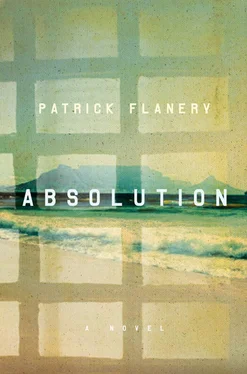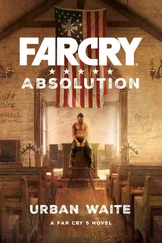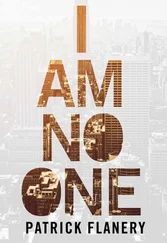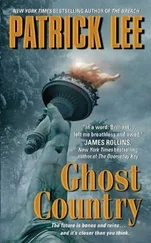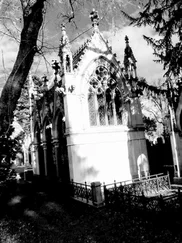‘Had it been left at that, it would have been forgotten, because to punish Nora on the word of that child would have been unthinkable, even to our egalitarian-minded parents. While the adults might have believed the boy, a part of them would have elected to disbelieve him because of his colour, and that disbelief would have won the day. But Nora could not leave the accusation alone, and at the same time was too young to know how to handle her accuser in a way that would have made her look like the innocent, wronged party — the role that I, in fact, inhabited. Having been wrongly accused, I stood through the entire drama as the truly innocent so often will: shocked and silent with my mouth agape. Nora, however, rushed at her accuser and pulled at his shirt and slapped him across the face two or three times before my father and Uncle Richard could pull her away from the boy, who was half her age and less than half her size.
‘After that day, I marked a change in the way my parents handled Nora. She was no longer trusted to look after me or any other child. She was given no responsibilities at home. My parents were still warm with her, but in a more distant way, as though she had done something so outrageous that they could never see her again as they had before. The crime of putting dog shit on our cousin’s twelfth-birthday cake would have been forgivable, even understandable. It was chiefly about jealousy — if not of Dorothy, then perhaps, indirectly, of me. But Nora compounded that crime first by accusing me of what she had done — thereby trying to undermine our parents’ affection for me — and second by assaulting the only witness to the actual crime.’
‘So,’ Mark said, the furrows of his brow deepening, ‘you’re saying that the real problem, as far as your parents were concerned, was that Nora had committed a premeditated crime designed to destroy their good impression of you, the favoured child.’
‘How do you conclude that I was the favoured child?’
‘You must have been, or Nora must have believed you were, if she felt pushed to do what she did — if she felt so marginalized already that she could only do something to make you look bad.’
Clare observed a shift in Mark’s attitude, as though his mind required a legal problem to master and direct his attention, and to make this encounter with his mother less difficult to bear.
‘I had never quite considered it in that way. The greatest crime was the assault on the truth-teller — the powerless one who has nothing to lose by speaking the truth, or who has everything to lose but doesn’t know what he has to lose, and therefore must be telling the truth.’
‘What happened to the child?’
‘As far as I remember, he was taken inside the house and had cold compresses applied to his face and was given sweet tea and a piece of the reserve cake Aunt Frances had made in case there was not enough of the first. That other cake had been hidden, safe in the airing cupboard. There was plenty of the reserve, and we all rallied our spirits for Dorothy’s sake. Nora, however, disappeared with my father. I cannot say whether she was beaten. I suspect she was not. My parents never punished me physically, and I have no memory that they ever did so to Nora. Rather, I suspect she was subjected to one of my father’s philosophical interrogations, which were often as painful as a beating might have been for the way in which he could make one feel totally exposed, unable to hide, and diminished to something less than the ideal child one was expected to be — less than that, but not less than human. My father knew how to tread that line, to make us see our faults without destroying our sense of our own humanity. After I was married, and more particularly after you were born, things became much worse between Nora and me. The question is, did I ultimately do what I did because of all the terrors Nora inflicted on me, or because of my own sense of investment in a moral and political and democratic struggle? The political or the personal?’
‘And what is it that you believe you’re guilty of doing?’
Although the house was warm and the day had been hot a shudder of chill ran round Clare’s shoulders. She had never spoken to anyone of what she had done, not even her husband, certainly not her parents, who would have been horrified and might never have forgiven her. Only those who had witnessed her transgression must have known, and she had long since lost touch with them; the story had come out neither in the trial of the supposed assassin, nor in the hearings of the Truth and Reconciliation Commission.
‘I gave away Nora’s location. I told someone who was not supposed to know where she and Stephan would be on a particular night. The information was used, and, as you know, they were murdered in their bed. For a long time I believed it was mere carelessness that made me do it, and a desire to be thought important by people I respected and feared not a little. The more time that passes the more I think that I knew exactly what I was doing — I knew how the information would be used and what the consequences would be. In retrospect it felt as much like a political decision as a personal one. Stephan was powerful and had the power to do great evil. In eliminating him, I felt as though I were striking a blow against the whole edifice of the apartheid state. Nora was collateral damage, as one now says. Her political role was negligible, and largely symbolic.’
Clare watched as Mark struggled to look at her, turning instead to gaze out on to the floodlit garden. Hoping to catch his eye in the glass if not in the flesh, Clare turned to face in the same direction. The lights in the garden and the pool were on a timer and without warning they suddenly went off, leaving the two of them staring at each other in the dark reflective surface of the dining-room windows.
Working in my vegetable garden with Adam this morning, preparing the ground for a new sowing of lettuce seeds, I inadvertently disturb a colony of ants, which begin to rush at me like escaped prisoners, crawling up onto my sandals and biting my feet and ankles before I can get away from them. Adam turns the hose on my feet without asking permission, and the ants scatter and drown.
‘I am sorry, Mrs Wald.’ He looks startled, embarrassed and rather frightened by what he has just done.
‘Do not be sorry, Adam, for goodness sake. You did exactly the right thing.’ In truth, I am surprised by this sudden intimacy. It suggests the kind of physical rapport that Jacobus and I once had, easy and mutually understood as exactly what it was, the necessary movements and actions of a cohesive working relationship. Later, Marie administers calamine lotion and no permanent harm is done. The surviving ants will have gone back to their business and I resolve to leave the lettuce for another day.
I think about provocation. Was it possible for a white woman of privileged background, who could only be a beneficiary of this country’s unjust system, to feel provoked into attack or provoked into aiding and abetting an attack?
The path you took to the work you felt you must do, Laura, is something I have no difficulty understanding. It is the work itself, if ‘work’ we can call it — the espionage, the bombings, the killing of innocents, even if their innocence was compromised by their participation in the architecture of apartheid, in its institutions and governing apparatus, its economies of oppression and utilities of isolation — that my mind is unable to reconcile with what I believe to be moral and ethical forms of resistance. I cringe before violence, because I know how easy it is for the culture of violence to infect even the just. I look at what our democratic country has become, at the way civic violence has been forged as its currency and coat of arms, and I wonder whether non-violent civil disobedience, notwithstanding the sluggishness of its progress, might have been the better way to win liberation. India achieved it thus; it may be an unequal society, but one can walk its streets for the most part without fear.
Читать дальше
